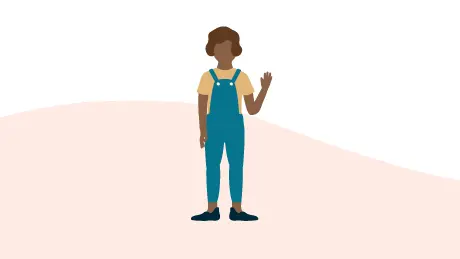For adults with ADHD (Attention-Deficit/Hyperactivity Disorder), no two days are exactly alike. While some moments are filled with bursts of creativity and hyperfocus, others are marked by forgotten appointments, half-finished tasks, and an ongoing struggle to stay organized. ADHD isn’t just a childhood condition—it persists into adulthood for many, impacting everything from work performance to relationships and self-esteem.
Let’s walk through a typical day in the life of an adult with ADHD, and explore how counselling services can play a key role in managing the daily challenges.
· Morning: The Struggle to Start
The day often begins with good intentions. The alarm rings—but snoozing it multiple times is a familiar routine. Time blindness, a common ADHD trait, makes it hard to sense how long things really take. Before you know it, you’re racing against the clock, grabbing clothes, skipping breakfast, and running out the door feeling frazzled.
Even the simplest morning routine can feel like a mental obstacle course. Many adults with ADHD find themselves overwhelmed by small decisions: What should I wear? Did I pack everything I need? Wait—where are my keys?
This is where counselling services can begin to make a real difference. Cognitive-behavioral therapy (CBT), a commonly used approach for ADHD, helps individuals develop practical tools like structuring routines, breaking down tasks, and managing time more effectively. Working with an ADHD therapist also provides a supportive space to unpack the anxiety and guilt that often come with chronic lateness or disorganization.
· Midday: Battling Distractions at Work
Once at work, the challenges continue. Starting a project can feel like pushing a boulder uphill. A barrage of emails, Slack notifications, and ambient noise only adds to the distraction. Meetings might be hard to sit through, and staying on task can be nearly impossible without frequent breaks.
Hyperfocus, the paradoxical flip side of ADHD, can also take hold. You might get so absorbed in one task that you lose track of time and miss other responsibilities.
Counselling can help identify these patterns and offer coping strategies tailored to work life. For example, counsellors may suggest techniques like the Pomodoro Method (working in timed sprints), mindfulness practices to improve focus, or environmental adjustments to reduce sensory overload. ADHD coaching—a form of practical counselling—can also guide adults in setting goals and following through, helping them build confidence and accountability over time.
· Afternoon: Energy Crashes and Emotional Waves
By the afternoon, mental fatigue often sets in. Small setbacks, like a confusing email or a task that takes longer than expected, can trigger a wave of frustration. Emotional dysregulation is another hallmark of ADHD in adults—reactions can feel bigger and harder to control.
Here, counselling plays a crucial role in developing emotional awareness and regulation skills. Through therapy, adults with ADHD can learn how to pause, identify what they’re feeling, and choose constructive responses rather than acting impulsively. It’s not just about “fixing” behavior—it’s about understanding the emotional landscape underneath it.
· Evening: Home Life and the Ongoing Juggle
At home, the symptoms of ADHD don’t clock out. There may be dishes in the sink, laundry half-done, and a to-do list that never got touched. Relationships can feel strained if a partner or family member doesn’t understand the condition. Interrupting, forgetfulness, and difficulty listening can unintentionally hurt loved ones.
North Vancouver Counselling services—especially couples or family therapy—can improve communication and build empathy between adults with ADHD and the people close to them. It helps normalize the experience and dispel the myth that ADHD is simply a matter of laziness or lack of willpower.
· Night: Reflection, Regret, and Resilience
As the day winds down, many adults with ADHD lie in bed with racing thoughts. They may reflect on what didn’t get done and battle feelings of inadequacy or guilt. But there’s also resilience—a hope that tomorrow can be better, especially with the right support.
Counsellors often work with adults to reframe their self-perception. Instead of focusing solely on failures, therapy encourages individuals to recognize their strengths—creativity, empathy, problem-solving—and find ways to harness them.
Final Thoughts
Living with ADHD as an adult comes with unique challenges, but it’s not a journey that needs to be navigated alone. Counselling services offer more than coping skills—they provide validation, guidance, and a space to rediscover self-worth.
With the right strategies and support system, adults with ADHD can move through their days with more clarity, confidence, and compassion—for themselves and those around them.

